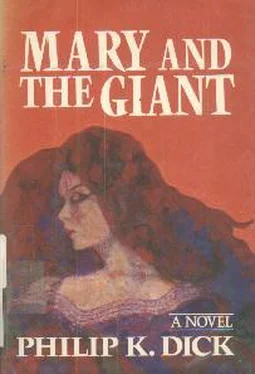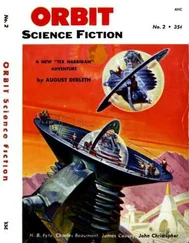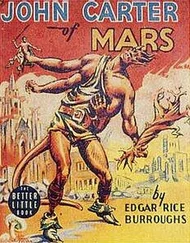Philip Dick - Mary And The Giant
Здесь есть возможность читать онлайн «Philip Dick - Mary And The Giant» весь текст электронной книги совершенно бесплатно (целиком полную версию без сокращений). В некоторых случаях можно слушать аудио, скачать через торрент в формате fb2 и присутствует краткое содержание. Жанр: Фантастика и фэнтези, на английском языке. Описание произведения, (предисловие) а так же отзывы посетителей доступны на портале библиотеки ЛибКат.
- Название:Mary And The Giant
- Автор:
- Жанр:
- Год:неизвестен
- ISBN:нет данных
- Рейтинг книги:4 / 5. Голосов: 1
-
Избранное:Добавить в избранное
- Отзывы:
-
Ваша оценка:
- 80
- 1
- 2
- 3
- 4
- 5
Mary And The Giant: краткое содержание, описание и аннотация
Предлагаем к чтению аннотацию, описание, краткое содержание или предисловие (зависит от того, что написал сам автор книги «Mary And The Giant»). Если вы не нашли необходимую информацию о книге — напишите в комментариях, мы постараемся отыскать её.
Mary And The Giant — читать онлайн бесплатно полную книгу (весь текст) целиком
Ниже представлен текст книги, разбитый по страницам. Система сохранения места последней прочитанной страницы, позволяет с удобством читать онлайн бесплатно книгу «Mary And The Giant», без необходимости каждый раз заново искать на чём Вы остановились. Поставьте закладку, и сможете в любой момент перейти на страницу, на которой закончили чтение.
Интервал:
Закладка:
Across the street the unidentified individual was kicking his tire and bending to see. Schilling watched as the man circled the car, bent once more, and then, getting behind the wheel, roared noisily off. Had a tire been low? Had he run over a bottle, a beer can? Had something of inestimable worth fallen out and been lost? The man was gone, and he would never know. Whatever the man had done, whatever he had, in secret, hatched and developed, would remain unknown.
Schilling opened the telephone book and found the number of the Lazy Wren. He dialed and listened.
"Hello," a man's voice, a Negro voice, came in his ear. "Lazy Wren Club."
He asked to talk to Paul Nitz. Eventually Nitz was at the phone.
"Who was that who answered?" Schilling asked.
"Taft Eaton. He owns the place. Who's this?" Nitz sounded dulled. "I have to go play a set."
"Ask him where Mary Anne Reynolds is," Schilling said. "He found her a place."
"What place?"
"Ask him," Schilling said. He hung up. When he felt better, he returned to his work.
Beyond the locked door, individuals passed. He heard the sound of their shoes against the pavement but he did not look up. He put new records on in the listening booth; he sharpened his pencil; he sealed up the Decca order sheet in an envelope and started on the Capitol order sheet.
The darkness hung over her, modified by the scatter of light from the hall. When she turned her head she saw that the hall door was open. She had not locked it; there seemed to be no point. In the dim light a figure was outlined, a man's figure.
"It didn't take you long," she said.
The man entered the room. But it was not Joseph Schilling.
"Oh," she said, startled, as the opaque form materialized close beside the bed. "It's you. Did-Tweany tell you?"
"No," Paul Nitz said, and sat down on the bed beside her. After a moment he reached out and stroked her hair back from her forehead. "I found out at the Wren, from Eaton. This is sure a ratty-looking dump."
"When did you find out?"
"Just now. I just went down there, to start work for the evening."
"I'm not in very good shape," she said.
"You were running," Nitz said. "And you ran right into yourself. You weren't even looking where you were going ... you were just going, trying to get away. That's all."
"Nuts to you," she said feebly.
"But I'm right."
"Okay, you're right."
Nitz grinned. "I'm glad I got to you."
"So am I. It's about time."
"I wanted you to leave, that night at your apartment. I was sick of that painting."
"Me too," she said. After a moment she asked: "Do me a favor?"
"Anything you want."
"You could go get me my cigarettes."
"Where are they?" He stood up.
"In my purse, on the dresser. If it's not too much trouble."
"How far's the dresser?"
"You can see it. There's only this one room-is that too far?" A period passed in which she lay listening to the noise of Paul Nitz fumbling around in the dark. Then he was back. "Thanks," she said as he lit a cigarette for her and placed it between her lips. "Well, it's been hectic. A hectic week."
"How do you feel?"
"Not too good," she said. "But I think I'll be okay. It'll take a while."
"Lie there and rest."
"Yes," she said gratefully.
"I'll turn on some heat." He found the small gas heater and lit it. Blue flames became visible; the fire hissed and sizzled in the darkness of the room.
"I can't see him again," Mary Anne said.
"All right," Nitz said. "You don't have to worry. I'll take care of you until you're back on your feet, and then you can take off, wherever you want."
"Thanks. I appreciate it."
He shrugged. "You took care of me once."
"When?" She had no memory of it.
"That night when I passed out and hit my head on the toilet.
And you sat down with me on the couch and held me in your lap."
He smiled a little, awkwardly.
"Yes," she said, remembering. "In some ways we had a lot of fun, that night. Lemming ... I wonder what became of him. That was such a strange night."
"I took some time off from the Wren," Nitz said. "I don't have to go back for almost two weeks. A sort of premature Christmas vacation."
"With pay?"
"Well, partially."
"You shouldn't have to do that."
"Now we can go places."
Mary Anne considered. "Would you really take me places!"
"Sure. Wherever you want."
"Because," she said earnestly, "there're a lot of places I want to see. We can do a lot of things ... could we go up to San Francisco?"
"When you feel like it."
"We can ride on the ferry. Can we do that!"
"Absolutely. There's one that goes to Oakland."
With fervor she said: "I want to visit some of those little restaurants out in North Beach. Have you ever been there?"
"Plenty of times. I'll take you to the Hangover Club to hear Kid Ory."
"That would be wonderful. And we can go out to Playland ... to the funhouse. We can go down the slides. Would you like that?"
"Sure," he agreed.
"Jesus." She reached up and hugged him. "You're a kid."
"So are you," Nitz answered.
"I am," she said. And then she thought of Joseph Schilling. And, presently, snarling with pain and despair, she clutched the man beside her, crying: "What the hell am I going to do? Answer me, Paul! How can I live like this?"
"You can't," he said.
"It was bad enough before. I knew something was wrong-but now it's worse. I wish I hadn't gone in there; Christ, if only I hadn't gone in there that day." But it wasn't true, because she was glad she had found the store. "It's still there," she said brokenly. "The store. Joseph Schilling. They're both there. In a way."
In a way, but it was a dead shell. There was nothing inside. She lay in the darkness, her arm around Nitz's neck, cigarette between her fingers, sobbing. It had come and gone, and left her by herself. But she didn't want to be by herself.
"I can't stand it!" she shouted. She hurled her cigarette across the room; it struck the far wall and dropped to the rug, a little flicker of red light. "I'm not going to die here in this rat hole."
Nitz went over and put out the cigarette. "No," he said, coming back. He gathered her up in his arms, and the bedcovers also, and carried her to the door. "Here we go," he said, holding her against him. He carried her down the hall and down the stairs; he carried her past the closed-up doors and their blaring sounds, past Mrs. Lessley the landlady, who peered out, suspicious and wary-eyed and hostile. He carried her down the front steps and along the night sidewalk, among the people wandering here and there in droves and in couples among the stores and gas stations and drive-ins and hotels and bars and drugstores. He carried her through the slums, through the business district, past neon signs and cafes and the office of the Leader, past the modern little shops of Pacific Park. Holding her tightly against him, he carried her to his own room.
22
Old men sat in the park, old men in rows covering the benches with their coats and newspapers.
Across the grass a scatter of yellow leaves broke under the feet of people. Two children, boys in jeans, tramped with brown paper bags-their lunches-toward the rim of the park. The old men read their L'Italia and accepted the autumn sun. Beyond the park the Catholic church was tall, and it cast its shadow. A handful of pigeons strode through the gravel around the drinking fountain, seeking remnants of food. The San Francisco sky was a thin, brittle blue. Turning on her bench, Mary Anne saw the slope of Telegraph Hill and the tower at its top: Coit Tower, like a pre-Christian column.
A bus, green and large, went along Columbus Avenue and was lost behind offices. On Mary Anne's lap her baby stirred, reached out his arms. She drew him back. He had no need for a bus.
Читать дальшеИнтервал:
Закладка:
Похожие книги на «Mary And The Giant»
Представляем Вашему вниманию похожие книги на «Mary And The Giant» списком для выбора. Мы отобрали схожую по названию и смыслу литературу в надежде предоставить читателям больше вариантов отыскать новые, интересные, ещё непрочитанные произведения.
Обсуждение, отзывы о книге «Mary And The Giant» и просто собственные мнения читателей. Оставьте ваши комментарии, напишите, что Вы думаете о произведении, его смысле или главных героях. Укажите что конкретно понравилось, а что нет, и почему Вы так считаете.










